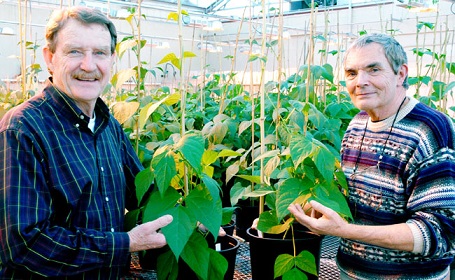Dry beans have been always present in diets, even long before biblical times. Archaeological evidence has been found of dry bean use in Asia, the Middle East, Africa, the Americas, India and China. Despite beans once being a staple of diets and having widely known nutritional benefits, people are not eating enough beans.
According to the Bean Institute, dry beans are an excellent source of water-soluble vitamins such as thiamin and folic acid and a good source of riboflavin and vitamin B6, as well as phytochemicals. They are low in fat, high in fiber and packed with protein. Dry beans provide a rich source of vitamins and minerals.
With all of those great properties, there is no doubt that consumption will have positive health impacts, and preventing cancer might be one of them. With funding from the U.S. Dry Bean Council, two researchers from the Colorado State University conducted research to find out if beans have anti-cancer properties.
The researchers used chickpeas, beans and cowpeas and found that the incidence of cancer in regular consumers was reduced by almost 50%. Moreover, the experiment was replicated with the exact same results. Such outcomes led the researchers to a five-year grant from the National Cancer Institute to better understand the cancer inhibiting activity of common beans, specifically white kidney beans.
Would it be possible to isolate the chemical properties of white kidney beans to make an anti-cancer pill? Read the full story in the International Food Trader Magazine here.

